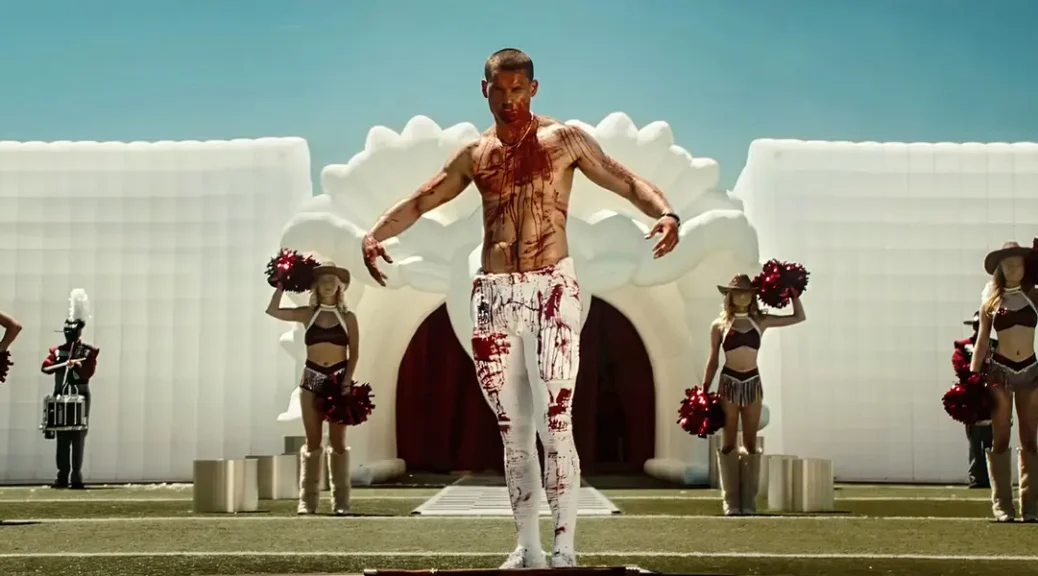Him
by Hope Madden
The goat is an apt image to anchor a sports film. The Greatest Of All Time. Every athlete’s dream. If you’ve ever watched horror, goats are also excellent avatars for evil. In the case of Him, co-writer/director Justin Tipping’s feature from Jordan Peele’s Monkey Paw Productions, it’s a bit of both.
Isaiah White (Marlon Wayans) lives deliciously. Is Cameron Cade (Tyriq Withers) ready for that? Cade is the up-and-comer, the college QB who may be the one man to dethrone legendary Saviors quarterback, White. The 8-time champion came back even after the bone-protruding leg injury Cam’s late father made him watch again and again as a child.
Why would a father make a child watch something like that? To learn what it means to be a man, naturally.
Him is dense with themes and imagery, beginning with the very real frights of traumatic brain injury and its effect on football players. But the larger horror is rooted in performative masculinity, of proving your physical superiority by overpowering an opponent, drawing first blood, drawing last blood, and calling it power when it’s simply entertainment for puny white men with money.
Tipping equates the mechanics of sizing up an athlete with preparation for an auction block in one of the film’s most quietly unnerving sequences. Later references to gladiators obediently entering the pit at the behest of their trainers serve as additional, hardly subtle, illustrations of the power dynamic afoot.
Withers’s overwhelmed acolyte feels more dopey than wide-eyed, but Wayans is slippery, diabolical fun as the primary antagonist. Naomie Grossman steals scenes as White’s biggest fan, and Tim Heidecker’s disingenuous smarm fits perfectly as Cade’s agent.
There’s an intriguing half to this film. It’s the half making points about the way those with a financial stake in the game proselytize brutal sacrifice in search of greatness. The delicious living half, though, feels like a cheat.
The supernatural elements in Him give way to a foggy mythology full of fever dream smash cuts and jump scares. At times—as on a shooting range—details are left delightfully, grotesquely vague. Elsewhere the ambiguity feels like narrative weakness.
Worse still, the supernatural side of the film, to a degree, lets capitalism and white supremacy off the hook, no matter how satisfying the final bloodletting may feel. The set design is evocative and cinematography impresses, but the film can’t quite live up to expectations.

